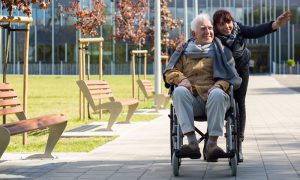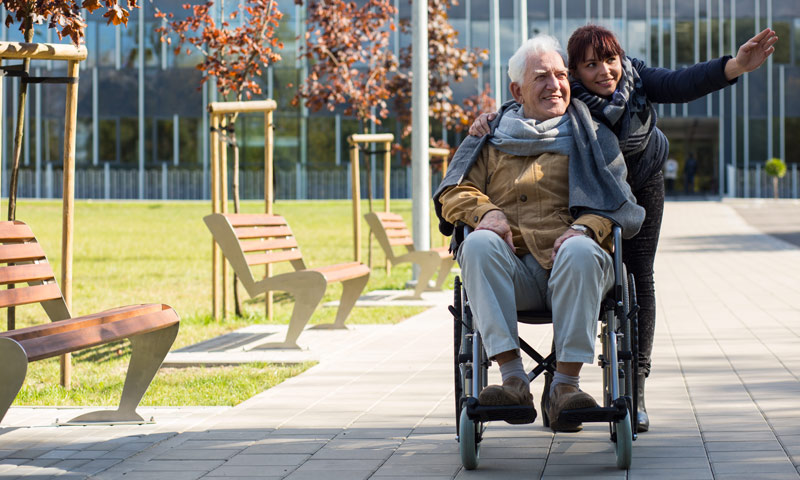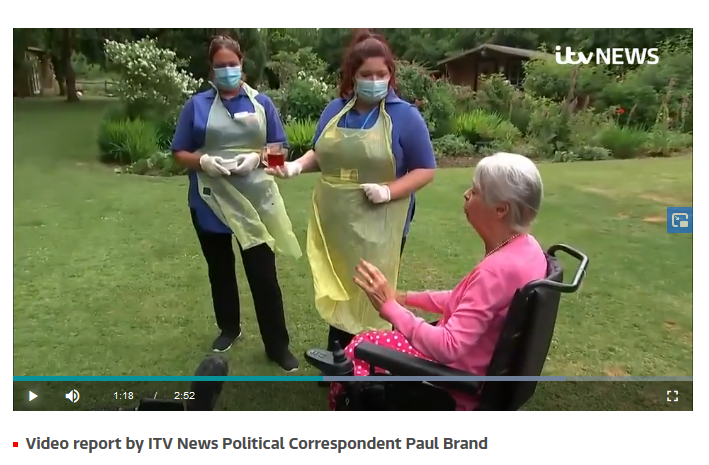Latest News from Everycare
 The government is to spend £588 million on helping people who require domiciliary care or care home support after being discharged from hospital.
The government is to spend £588 million on helping people who require domiciliary care or care home support after being discharged from hospital.
The funding is part of a three-billion pound package provided to protect and prepare health and social care in the event of a second peak of COVID-19, during the coming winter months, and follows a £1.3bn funding made available via the NHS to support the discharge process in March.
From 1 September, the NHS will make a comprehensive care and health assessment for any ongoing care needs, including determining funding eligibility. This will provide up to six weeks of funded care following discharge from hospital.
The government also said NHS Continuing Healthcare (NHS CHC) assessments will restart from September, ensuring those with complex health needs can continue to access the care they need for free.
’The road to recovery is quicker’ when receiving care ‘in the comfort of home’
Health and Social Care Secretary, Matt Hancock, said: “We know for the majority of people the road to recovery can be quicker when they receive care and support in the comfort of their own home.
“This funding will help ensure people can be safely discharged from hospital knowing they will get the vital follow-on care they need to recover fully from treatment.
“We’re also making sure those with complex health needs continue to receive the best support possible in the community.”
The department states most people will be discharged back to their homes, however, they anticipate a very small proportion will need, and benefit from, short or long term residential, nursing home or hospice care.
The government added, no-one should be discharged from hospital directly to a care home without the involvement of the local authority.
All patients are required to be tested prior to discharge to a care home and no care home should be forced to admit an existing or new resident who has tested positive for coronavirus if the home would be unable to cope with the impact of their illness.
For more information visit the homecare.co.uk website

More home care and a shift away from long-term support in care homes is recommended by the Association of Directors of Adult Social Services in England (ADASS).
A report by ADASS calls for a down-sizing of care homes with more care provided to people in their own homes.
ADASS president James Bullion stated in the report: ‘We have the opportunity to be radical, to be person-centred and to be transformative. We must seize this opportunity with both hands’.
‘Down-sizing’ care homes
The ADASS report stated: ‘For too long care has been built around organisations and buildings such as hospitals, day care centres and care homes.
‘The future must be about what works for us as individuals and our families, with a whole series of local organisations working together to organise care and support that enables us to work, stay independent at home, and be as engaged in our communities as we want.
‘More of this care is likely to be provided in our own homes and will be integrated into specialist housing and care packages akin to current extra care provision.
‘Any short-term support (particularly in the immediate post-Covid-19 period) for particular types of care provision should be tied to a commitment to participate in the reform conversation and where necessary to downsizing particular types of provision, such as potentially some forms of care home provision’.
‘Home First’
The report stated that ‘reform must be underpinned by the Home First principle’, with ‘a much stronger emphasis’ on some existing types of care and support which are housing based, such as ‘supported living’ and ‘extra care housing’, as well as new and innovative forms of care.
‘In turn, this may mean a shift away from existing types of residential care, for example, a lesser reliance on long stay, larger scale care homes although they may continue to play a key role in reablement and short-term care.’
 More people are dying at home of stroke rather than dialling 999 during the pandemic, because of a ‘stiff upper lip’ mentality by over 65s, a charity reveals.
More people are dying at home of stroke rather than dialling 999 during the pandemic, because of a ‘stiff upper lip’ mentality by over 65s, a charity reveals.
A poll conducted for the Stroke Association has discovered more than a third (35 per cent) of over 65s said they are least likely to call the emergency services during the pandemic for non-COVID symptoms like signs of stroke.
Fifty-one per cent said they would not call 999 because they didn’t want to “burden already busy emergency services”, despite this age group being at the greatest risk of stroke.
The findings are the result of a poll of 1,000 people conducted between 1 – 31 May by Eden Stanley.
Stroke deaths double as ‘stoicism kills’
Stroke deaths registered at home have been 54 per cent higher than the five-year average during the coronavirus pandemic, according to Office for National Statistics figures. More than double as many stroke deaths happened in the week ending 3 April, when compared to the five-year average.
For further information visit the homecare.co.uk website.
“EVERYCARE IS MY EVERYTHING” …. a quote from a service user at our East Surrey branch when interviewed by ITV yesterday.
Whilst the quote wasn’t actually broadcast the client confirmed in the report how much she appreciated the Everycare support stating “Please don’t say they are never going to come”. It is heartening to know in such difficult times we are still here making a difference to the lives of so many.
 Gill worked really hard with her team and spent over three hours filming yesterday, so it was naturally a little disappointing that they showed so little of the piece. None the less there has already been positive feedback to the Everycare office this morning as people recognized the team.
Gill worked really hard with her team and spent over three hours filming yesterday, so it was naturally a little disappointing that they showed so little of the piece. None the less there has already been positive feedback to the Everycare office this morning as people recognized the team.
Gill said she didn’t want to be personally famous but she did want Everycare to be famous. Isn’t that just the unique team spirit of Everycare!
Little by little the service users that decided to cancel care because of the perceived risks of having contact with care staff are returning. The strain and pressure on relatives and friends is starting to show and some just can not cope any longer without help.
Although the risks of contracting Covid 19 in care homes has been much publicised the actual incidence of the illness in users of community care services has been extremely low.
We are very confident that all our service users can rely on our extreme diligence in taking every possible precaution when delivering any form of care and can be confident that our help is only a phone call away if we are needed.
 The government is to spend £588 million on helping people who require domiciliary care or care home support after being discharged from hospital.
The government is to spend £588 million on helping people who require domiciliary care or care home support after being discharged from hospital.




